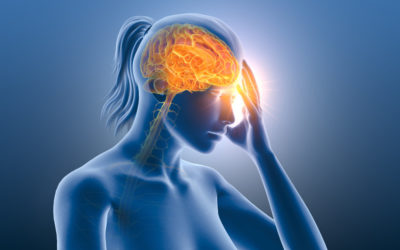Alcohol use disorder (AUD) is a chronic disease characterized by an impaired ability to stop or control alcohol use despite adverse social, occupational, or health consequences. AUD can range from mild to severe, and recovery is possible regardless of severity. There are many different treatments for alcohol use disorder such as programs for medically managed detoxification, psychological counseling, spiritual practice, treatment for co-occurring mental health disorders, ongoing support groups, and medication1.
According to the National Survey on Drug Use and Health in 2019 in the United States, 14.1 million people aged 18 or older had an alcohol use disorder in the past year2. However, only about 7.3% of adults who had AUD in the past year received any treatment3. Even fewer (1.6 percent or 228,000 people) received medication in the past year for their alcohol use4.
Medication is an underutilized treatment option that can help people stop drinking or reduce the amount they drink. There are three FDA approved medications for treatment of AUD5.
Naltrexone
Naltrexone blocks opioid receptors in the brain that make opioid drugs, and likely alcohol, rewarding. When taking naltrexone, consuming alcohol becomes a less pleasurable experience. Naltrexone can be effective at reducing cravings, reducing amount of alcohol consumed and increasing abstinence. Naltrexone comes as an oral tablet taken daily or an extended-release injection (brand name: Vivitrol) administered every month which may benefit patients with adherence issues.
Disulfiram
Disulfiram (brand name: Antabuse) was the first medication approved by the FDA for alcohol use disorder. This medication works by changing the way the body breaks down alcohol. If someone drinks after taking this medication, the alcohol will make them very sick. This medication is more effective for patients with a goal of complete abstinence and who will commit to taking it every day under supervision. The reaction with alcohol can occur for up to 14 days after the last dose.
Acamprosate
Acamprosate (formerly sold under the brand name Campral) is indicated for maintaining abstinence in patients with AUD who are abstinent at the time treatment is initiated. This medication can also help reduce the discomfort experienced during withdrawal. Acamprosate normalizes the neurotransmitter glutamate in the brain, which can become dysregulated with chronic alcohol exposure and during alcohol withdrawal.
Despite the availability and effectiveness of medications for AUD, supplying them to people in need remains a challenge. If you or someone you care about has alcohol use disorder there are many treatment options, and recovery is possible. Consider talking to your healthcare provider about medication for alcohol use disorder.
Sources:
- https://www.mayoclinic.org/diseases-conditions/alcohol-use-disorder/diagnosis-treatment/drc-20369250
- Substance Abuse and Mental Health Services Administration. (2020). Key substance use and mental health indicators in the United States: Results from the 2019 National Survey on Drug Use and Health (HHS Publication No. PEP20-07-01-001, NSDUH Series H-55). Rockville, MD: Center for Behavioral Health Statistics and Quality, Substance Abuse and Mental Health Services Administration. Retrieved from https://www.samhsa.gov/data/
- https://www.niaaa.nih.gov/publications/brochures-and-fact-sheets/alcohol-facts-and-statistics
- Han B, Jones CM, Einstein EB, Powell PA, Compton WM. Use of medications for alcohol use disorder in the US: results from the 2019 National Survey on Drug Use and Health. JAMA Psychiatry. Published online June 16, 2021. doi:10.1001/jamapsychiatry.2021.1271
- Reus, Victor I., et al. “The American Psychiatric Association practice guideline for the pharmacological treatment of patients with alcohol use disorder.” American Journal of Psychiatry 175.1 (2018): 86-90.











